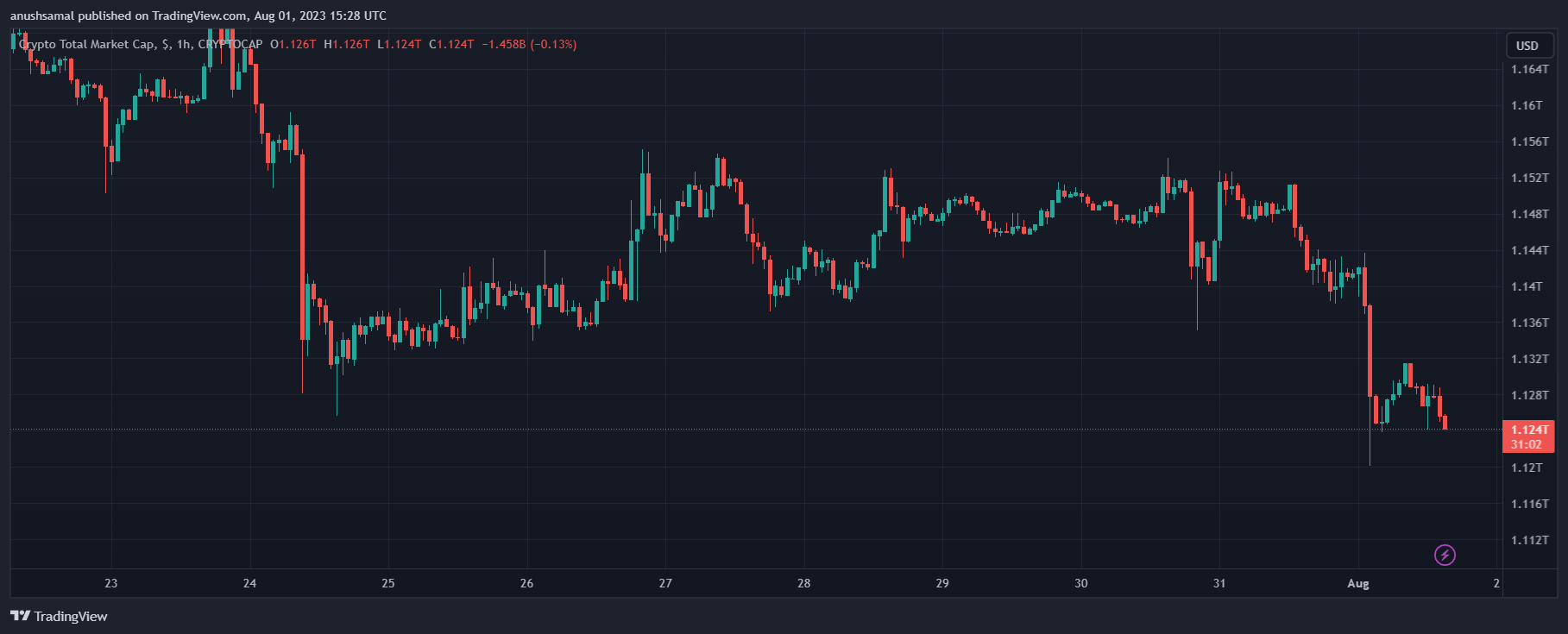
The Internal Revenue Service (IRS) has recently issued a ruling stating that United States cryptocurrency investors who receive rewards from staking services are required to include the value of those rewards in their gross income.
On July 31, 2023, the IRS issued Revenue Ruling 2023-14, providing clarity on the tax implications for individuals engaging in staking activities. Income realized in any form, such as money, property, services, or staking rewards, is considered part of the gross income.
According to the recent Revenue Ruling 2023-14 by the IRS, this definition encompasses various sources of earnings for tax purposes. Therefore, taxpayers must include any income obtained from staking digital assets on proof-of-stake (PoS) blockchains as part of their annual income.
Related Reading: Crypto Backer: US Presidential Hopeful Vows To End “Biden’s War On Bitcoin”
Proof-of-stake (PoS) is a cryptocurrency consensus mechanism utilized to process transactions and generate new blocks within a blockchain.
The bulletin stated:
If a cash-method taxpayer stakes cryptocurrency native to a proof-of-stake blockchain and receives additional units of cryptocurrency as rewards when validation occurs, the fair market value of the validation rewards received is included in the taxpayer’s gross income in the taxable year in which the taxpayer gains dominion and control over the validation rewards.
A dominion is the degree of control or ownership an individual or entity holds over specific assets or income. It determines tax liability, assessing whether an individual or entity has sufficient control to be considered the “owner” for tax purposes.
The same rule applies to investors staking tokens through a cryptocurrency exchange as well. The bulletin additionally stated that “The taxpayer receives additional units of cryptocurrency as rewards as a result of the validation.”
According to the IRS’s guidelines, the taxable income should be calculated by determining the fair market value of the cryptocurrency rewards at the time of receipt. This value is added to the taxpayer’s annual income for the corresponding tax year.
Tax Implications for Cryptocurrency Staking: IRS Ruling Signals New Compliance Measures
The IRS’s recent ruling has had a significant impact on the taxation landscape for investors engaging in staking activities. While proof-of-stake is gaining popularity for its energy efficiency and environmental benefits compared to proof-of-work, the tax implications were not explicitly defined until now.
The Securities and Exchange Commission (SEC) has rather focused its attention on Binance’s staking service, alleging that it violates securities laws.
As a result, cryptocurrency investors and stakeholders must now be more vigilant and proactive in understanding and fulfilling their tax obligations related to staking rewards. This ruling may prompt some investors to reevaluate their staking strategies and explore tax-efficient approaches to reduce potential tax liabilities.
On the positive side, the IRS’s decision could lead to improved compliance and transparency in the cryptocurrency space as investors become more aware of their tax responsibilities.



















